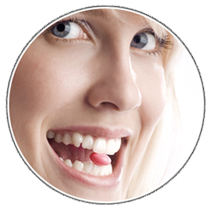simplified access to the morning-after pill : what returns ?

Since the 28th of last may, access to the pill for the students of the college and the high school is simplified.
Previously, students involved should find themselves in a situation of “distress characterized” and conduct an interview with the nurse hope to obtain the morning-after pill. This is no longer the case.
If the morning-after pill should be distributed free of charge, anonymously and without prescription in pharmacy (for minor students), the reality is quite different. A report recent on France 4 showed, moreover, that many of the pharmacists resisted to give, between the refusal is categorical and warnings are unjustified.
Because of this, the school infirmary, due to its proximity and the removal of barriers to obtaining the morning-after pill, seems destined to become the place of choice for teenage girls who need access to emergency contraception.
This “free access” to the morning-after pill has been welcomed by many, but also led to reactions of suspicion and fear.
So what can we learn from these reactions ? Good thing or bad thing ?
We decided to weigh the pros and cons, in order to enlighten you and you make your own opinion.

Yes, the easy access to the morning-after pill is a good thing
Previously, it was difficult for the young to take even the step of the door of the infirmary. Because they knew they were exposing themselves to a questionnaire to prove their need before being reoriented to a health care professional.
What’s more, the school nurse was constrained, serving only as an intermediary.
Now, the access is simplified for the young girls and the nurse holds a more important role, notably listening and council. This allows them also to be able to identify more easily situations that were serious, such as sexual violence.
The nurses will then be able to give the morning-after pill without having to go through an intermediary, the link will be exclusive between her and the student. This will allow you to develop a relationship of confidence and will facilitate access to students who will know that the only person aware of their situation, be their nurse and no one else. So we can think that certain students in need will be able to go beyond their fears and sometimes their shame.
Beyond this, we can consider this change as an upgrading of the nursing profession, since nurses decide they even distribute the morning-after pill.
And the notion of advice and listening that they will be able to bring an additional dimension to their work.
No, access to the morning-after pill should not be facilitated
Admittedly, the subject can be difficult to address for these young girls, or even taboo, especially in their family.
But to facilitate the access to this point, that is to say, without medical supervision, and in anonymity, isn’t it trivialize the taking of this medication is supposed to be exceptional ?
These young girls are they aware that the morning-after pill is not intended for frequent use, but the result of an “accident” not to reproduce ? That the morning-after pill is not a contraceptive regular but a supplementary guarantee in case of failure of this last ?
There may be a tendency to disempower the sexual act, rather than to push these young ladies to understand the functioning of their body.
And once again, we can only observe that this solution, which can be qualified facility will have a tendency to “heal” rather than ” prevent “. We take the risk of leaving these young women to educate themselves only proposing a solution that is not one of them, not to mention the contradiction between the fight against sexually transmitted diseases, and access to the morning-after pill-which is not a response to that.
As you can see, the morning-after pill may bring many answers but also questions. It remains that the latter, if it allows number of young girls and women to get out of tricky situations, may not be the miracle solution and that it is upstream that we need to work to ensure that its decision remains outstanding.
